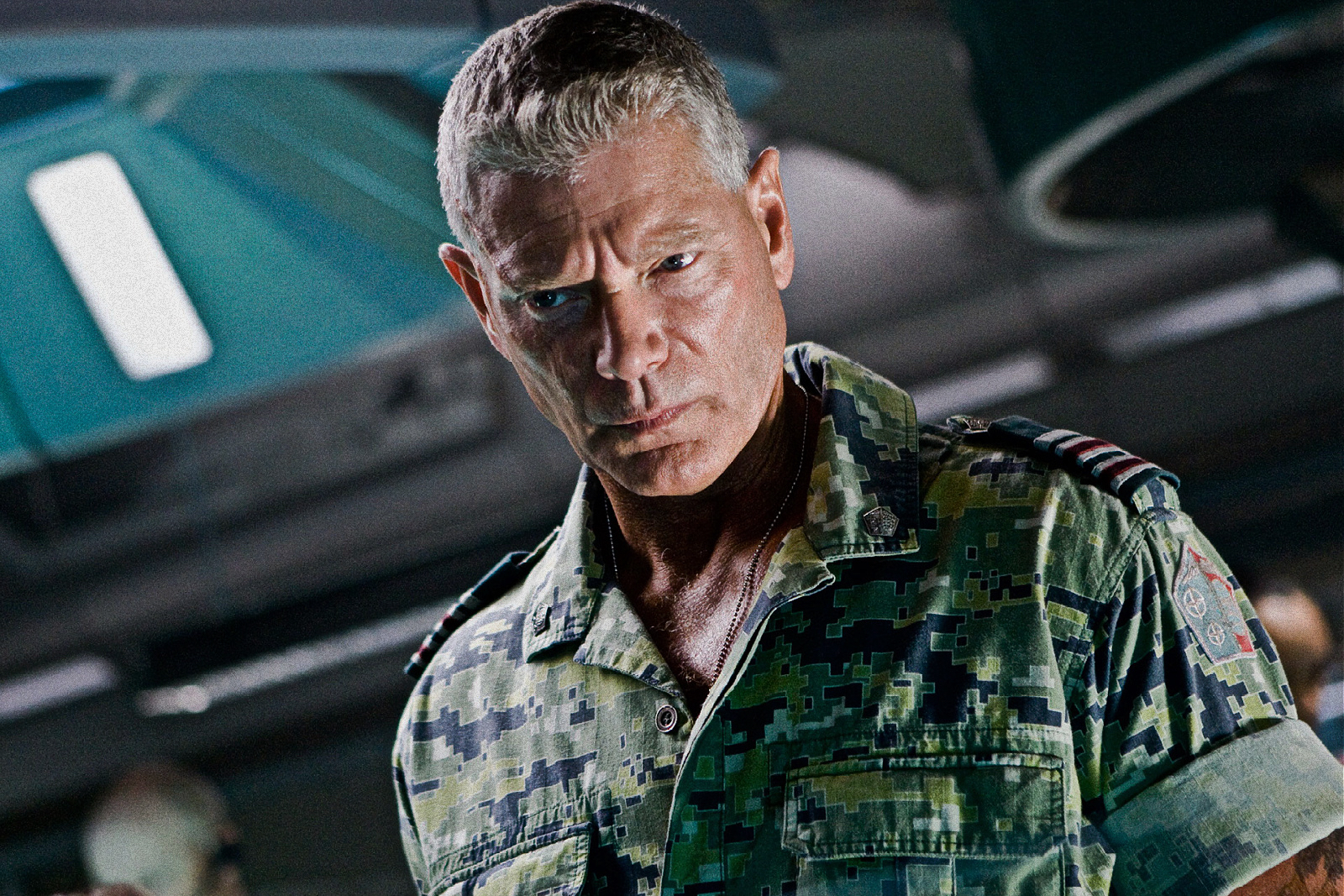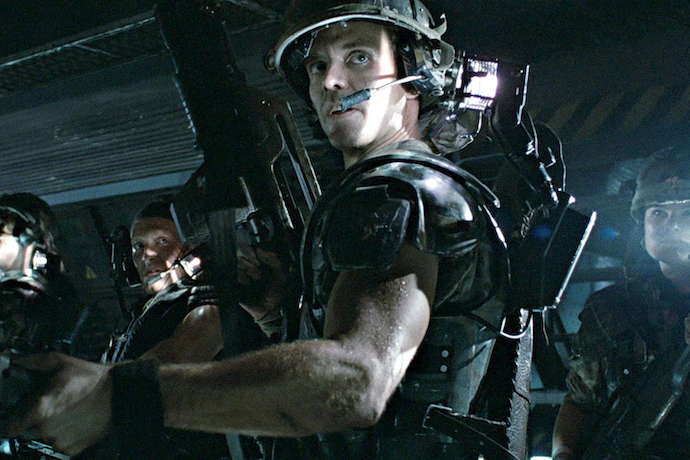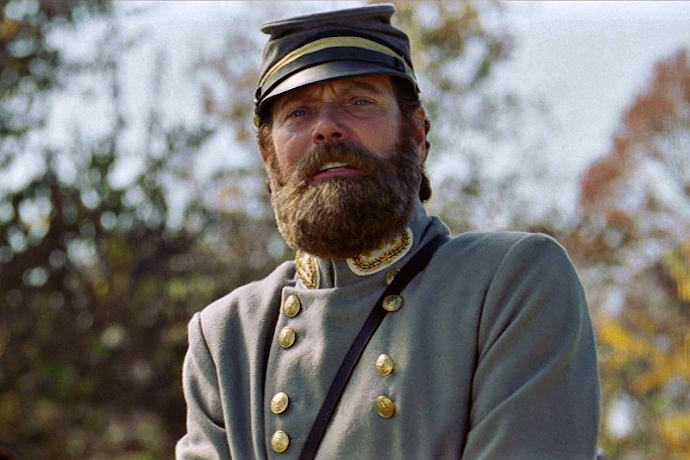
Is the Real Villain of ‘Avatar’ Gen. Stonewall Jackson?
This is not a review of Avatar: The Way of Water. If you asked me what I thought of it, I would say that I definitely enjoyed the movie. It’s not my favorite James Cameron sequel, that honor still belongs to Terminator 2: Judgment Day. But I do think it’s an improvement on the original, in part because it does a better job at worldbuilding.
Its 3-hour run time doesn’t drag, and the special effects are deeply immersive, particularly in 3D. I’ve seen it on the big screen in 3D twice, and look forward to being able to watch it and its predecessor back-to-back.
When it comes to blockbuster films and directors, and especially James Cameron, I’ve developed a theory of sorts. One of the most underrated aspects about James Cameron is how well he casts his movies. It started with The Terminator; Cameron played into Arnold Schwarzenegger’s strengths, which leaned on the physical side and emphasized his overall presence rather than his acting chops.
Aliens emphasizes the ensemble nature of the characters played by the likes of Michael Biehn, Lance Henriksen (both of whom had already worked with Cameron on The Terminator), Jenette Goldstein, and the late, great Bill Paxton. The impeccable casting allows the audience to soak in how distinct their respective personalities are, particularly in contrast to Sigourney Weaver’s Ripley. By the time of The Abyss, Cameron doubled down on wanting Ed Harris in the lead role despite the studio not wanting an older, balding leading man.

Terminator 2 carries over both Schwarzenegger and Linda Hamilton’s Sarah Connor from the first movie but adds a new dimension by making Schwarzenegger’s Terminator the good guy, most likely because Cameron noted how Schwarzenegger’s acting abilities had improved from 1984 to 1991. It also featured the relatively-unknown Robert Patrick as the villainous T-1000, who is able to instill terror with just a look at his robotic features. Patrick was cast after Cameron and the studio initially wanted rock star Billy Idol to play the baddie, but Idol was unable to do so following a motorcycle accident.
True Lies once again featured Schwarzenegger in the lead role of Harry Tasker, but the casting of Jamie Lee Curtis as Tasker’s wife felt a bit more subversive. While she started off her career as a “scream queen” running from Michael Myers in the first Halloween movie in the 1970s, as well as The Fog and Prom Night, by the time the 1980s rolled around, Curtis was best known for comedies like Trading Places (1983) and A Fish Called Wanda (1988). Having her play an action heroine and sex symbol was something new, exciting, and different for Curtis, and would help keep her relevant up to last year’s breakout hit Everything Everywhere All at Once, for which she recently received her first Oscar nomination.
And then there’s Titanic. First off, kudos to Cameron for finding and casting two of the best actors of their generation right at their breakout point. Both Kate Winslet and Leonardo DiCaprio had Oscar nominations under their belts by that point. DiCaprio was probably the bigger name of the two due to his roles on the sitcoms Parenthood and Growing Pains, as well as Baz Luhrmann’s Romeo + Juliet, but both of their careers could have gone either way. Jack could have just as easily been played by the likes of Johnny Depp, Matthew McConaughey, or Chris O’Donnell, all of whom were considered. The studio also wanted a bigger name like Jennifer Aniston for Rose. But Cameron stuck to his guns, and we got a big-screen coupling so celebrated and beloved it makes me think that without the specific pairing of these two actors, one of the most iconic movies ever made would not have worked as effectively.
The point is, James Cameron casts very deliberately, with his mind on what gifts actors bring to the table, as well as what they’ve been able to pull off in previous roles. Cameron loves working with actors he’s worked with before: Bill Paxton was a mainstay before his untimely passing in 2017, and Avatar: The Way of Water features both Sigourney Weaver and Kate Winslet in key roles.
Cameron also loves when actors have already demonstrated skills that they would eventually utilize in his movies. For example, he knew Billy Zane could play the over-the-top villain in Titanic after seeing him in Tales from the Crypt: Demon Knight, just as much as he knew Zoe Saldaña could play an action heroine in the Avatar movies after seeing her in the first Pirates of the Caribbean movie. As if to confirm Cameron’s assessment, Saldaña has only strengthened her sci-fi action bona fides in the years in between Avatar entries with her roles as Uhura in the Star Trek movies and Gamora in the Marvel Cinematic Universe.
This brings me to actor Stephen Lang. In the Avatar movies, Lang plays the antagonist Col. Miles Quaritch. In the first installment, Quaritch is the human in charge of the military on planet Pandora, working to wipe out the native Na’Vi species in order to strengthen humanity’s grip on the planet and mine the profitable “unobtainium” mineral. In the second one, Quaritch is reborn into a Na’Vi body called a Recombinant that was not only grown using his own DNA but also contains his old memories and personality. This new and improved Quaritch seeks to hunt down protagonist Jake Sully (Sam Worthington) and his family, all the while dealing with reuniting with his son, known as “Spider” (Jack Champion), who was left behind on planet Pandora as a baby and was ostensibly raised as a part of Sully’s family unit.
Lang is a longtime character actor who has had supporting roles in movies like Michael Mann’s Manhunter (1986), best known today as the prequel to The Silence of the Lambs, Tombstone (1993), and most pertinent to this discussion, Gettysburg (1993), where he plays disgraced Confederate Maj. Gen. George Pickett, best known for the failed “Pickett’s Charge” at the climactic battle of the Civil War that bears his name.

Awkwardly, Lang’s first major starring role was as Confederate General Thomas Jonathan “Stonewall” Jackson in a particularly putrid piece of propaganda called Gods & Generals. Produced by CNN founder Ted Turner and billed as a prequel of sorts to Gettysburg, Gods & Generals focuses on the early days of the Civil War, with the personal journey of Lt. Col. Joshua Lawrence Chamberlain (Jeff Daniels) representing the Union, and with the exploits of Gen. Robert E. Lee (Robert Duvall, who deserves so much better than to be in this) and Lang’s Jackson representing the Confederacy.
In describing the movie, it’s a three-hour-plus tortuous slog I can’t do much better at describing than my hero, Roger Ebert. In his review, he assailed Gods & Generals as “obsessed with military strategy [and] religiously devout,” that the Civil War is “handled with solemnity worthy of a memorial service,” and that it’s “the kind of movie beloved by people who never go to the movies, because they are primarily interested in something else—the Civil War, for example—and think historical accuracy is a virtue instead of an attribute.”
In the movie, Lang’s Jackson is shown to be overly pious, even admirable throughout the film, despite his fighting on the side of treason and white supremacy. He prays frequently, and in one particularly awful scene, comforts the young daughter of a Confederate soldier played by a young actress who very obviously cannot act by emotionally telling her “your daddy will come home; all the daddies will come home,” after which she hugs him. This scene can’t help but remind me of Nazi propaganda, as Adolph Hitler loved to be photographed with little girls in order to enhance his personal image and branding.
Given his role in Gods & Generals, there does seem to be quite a bit of overlap between Quaritch and Jackson. Both are glorified and revered for their military prowess by a military-industrial complex built upon brutalizing an oppressed population by means of controlling and making them subservient to the ruling class. But unlike the rose-tinted, historical revisionist, Ted Turner-funded “Lost Cause” fantasy of Gods & Generals, Cameron allows us to see a commander reminiscent of Stonewall Jackson the way he truly is: smug, aggressive, intolerant, obsessed, and brutal.
Thus, given how deliberately Cameron casts, I venture to say that the casting of Stephen Lang as the villain in the Avatar movies is not only very intentional, but specifically in reference to his role as Stonewall Jackson in Gods & Generals. The only possible support I have for my theory in Avatar: The Way of Water is a simple line Quaritch says in regard to the Na’Vi: “They stonewalled us.”
But given what an emphasis Cameron puts on casting and how calculatedly he does so, I don’t think I’m crazy for seeing a connection there. For a left-leaning, eco-friendly Canadian like Cameron, who best to play the bad guy than an actor who has experience playing someone who embodied so much of the problematic, patriarchal, and militaristic culture of the South during the Civil War?
In the summer of 2020, at the height of the George Floyd protests, a monument to Jackson that used to line my hometown of Richmond, Virginia’s Monument Avenue was taken down. It showed how far his historical assessment had fallen in the public consciousness, and that his ties to the evils of slavery, treason, and white supremacy could no longer be excused, flat-out ignored, or subject to historical revisionism or “Lost Cause” ideology.
Stephen Lang may have first risen to prominence as Stonewall Jackson, yet he is now forever tied to this role and to the Avatar franchise. Gods & Generals reframes a controversial figure in history as a good, decent, God-fearing man trying to do the right thing as any controversy or problems are whitewashed for the sake of an over-simplified narrative. The extremely troublesome main thesis of Gods & Generals, as a certain former president might frame it, seems to be that there were very fine people on both sides of the worst conflict in American history.
Yet, it feels like Lang might’ve taken the role as Quaritch as possible atonement for his role as Stonewall Jackson, a realization that glorifying such figures is a disservice that removes nuance and ultimately aids in subjugating an oppressed population. Additionally, perhaps by taking the role, Lang is also acknowledging that such figures were never deserving of the praise they received and were always the “bad guy” of the story, whether they’re 10-foot tall blue alien hybrids or bearded Confederate commanders.

